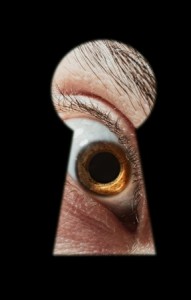 I came across a biography for Leonard Cohen recently, and since he was already on the brain (thanks to another great internet celebrity death hoax) I picked it up and started reading.
I came across a biography for Leonard Cohen recently, and since he was already on the brain (thanks to another great internet celebrity death hoax) I picked it up and started reading.
Only in recent years have I begun a tentative toe-dipping back into the waters of the biography after becoming mostly disillusioned with the genre during my school days. Back then, any assignment to research some figure of choice became a quest, in my mind, to find a hero–someone I could hold up as a standard, whose life philosophy I could adopt and whose picture I could hang on my wall.
Inevitably, I came up disappointed– Shakespeare was likely an adulterer with questionable authorship, Beethoven a moody, unfaithful misanthrope, and even the seemingly flawless Audrey Hepburn was sometimes troubled and possibly anorexic. I became frustrated with what I deemed the disparity between the lives and the work of my favorite artists, and in the long run, decided I’d just rather not know their life details–instead remaining happily naive of the flaws and challenges of such persons of note.
It is only lately that I have returned to the genre–with a rather altered view. Therefore, picking up Leonard Cohen’s biography the other day had little to do with any quest for a hero. In fact, I can safely say that not only am I no Cohen expert, but anyone would be hard-pressed to even call me much of a fan. I am only vaguely familiar with his songs, and know next to nothing of him and his career as a singer/songwriter/author. My interest in the man lies in the fact that he was responsible for penning, in a few lines of song lyrics, words that have not only been immensely significant to me, but have become a sort of life philosophy. These are from his song, “Anthem.”
Ring the bells that still can ring
Forget your perfect offering
There is a crack in everything
That’s how the light gets in.
These lyrics express why my philosophy toward biography has changed over years. I used to believe that the value in any life existed solely in its merits–its smooth, unblemished surfaces. However, as Cohen so accurately suggests–there is no such thing as “unblemished” in ordinary humanity: “There is” rather, “a crack in everything. And, not only are the cracks, the flaws, the mistakes inevitable, but they are necessary. They are “how the light gets in,” the light of experience, wisdom, humility, redemption, and hope.
So, perhaps it is the pain of error, the carrying of personal shortcomings, the long weary wading through the muddy paths of life that allowed these people to create art–to forget their own impossible “perfect offering” and in pressing forward in a flawed, human way, to make room for something divine.
 This week’s quote comes from a book called Wonder by R.J. Palacio. My nine-year-old suggested (read:commanded) that I read this, and it sparked a number of discussions between the two of us about school, bullying, feeling different, and especially being kind. It is a story about a boy with a facial deformity who leaves the comfort of his safe, home-schooled life to attend middle school for the first time, but also extends outward to include the thoughts and feelings of those who surround and are influenced by him. It is a great reminder that even though some challenges may be more visible than others, everyone struggles with something…and that we could all afford to be gentler with each other. The book is sometimes painful, but ultimately uplifting and motivating. The quote is part of a speech given by the school’s principal at a year-end graduation ceremony.
This week’s quote comes from a book called Wonder by R.J. Palacio. My nine-year-old suggested (read:commanded) that I read this, and it sparked a number of discussions between the two of us about school, bullying, feeling different, and especially being kind. It is a story about a boy with a facial deformity who leaves the comfort of his safe, home-schooled life to attend middle school for the first time, but also extends outward to include the thoughts and feelings of those who surround and are influenced by him. It is a great reminder that even though some challenges may be more visible than others, everyone struggles with something…and that we could all afford to be gentler with each other. The book is sometimes painful, but ultimately uplifting and motivating. The quote is part of a speech given by the school’s principal at a year-end graduation ceremony.





